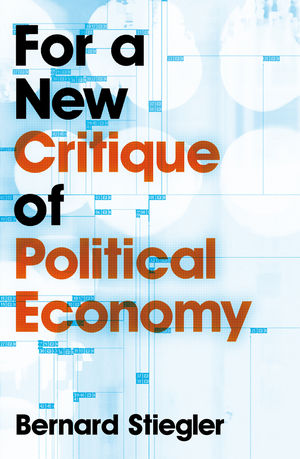Alain Joxe: Empire of Disorder (2002)
Filed under book | Tags: · balkans, chechnya, democracy, economy, empire, fascism, globalisation, kosovo, military, neoliberalism, philosophy, politics, serbia, sovereignty, strategy, violence, war, yugoslavia

“Globalization is quickly turning the world into a chaos, leading to an increasing disparity between rich and poor, the rise of an international, rootless ‘noble class,’ and an escalating number of endless cruel little wars. Yet the United States refuses to conquer the world and assume the protective imperial role for the societies it subjugates. Instead, it operates on a case-by-case basis, regulating disorder, repressing the symptoms of despair instead of attacking its cause. For the first time perhaps, humanity has embarked on an ocean of disorder with no final order in sight.”
Translated by Ames Hodges
Edited by Sylvère Lotringer
Publisher Semiotext(e), 2002
Active Agents series
ISBN 1584350164, 9781584350163
221 pages
PDF (updated on 2012-7-26)
Comment (0)Bruno Latour, Peter Weibel (eds.): Making Things Public: Atmospheres of Democracy (2005)
Filed under book, catalogue | Tags: · aesthetics, art, assemblage, democracy, philosophy, political economy, politics, science, societya, technology, things

“In this editorial and curatorial project, more than 100 writers, artists, and philosophers rethink what politics is about. In a time of political turmoil and anticlimax, this book redefines politics as operating in the realm of things. Politics is not just an arena, a profession, or a system, but a concern for things brought to the attention of the fluid and expansive constituency of the public. But how are things made public? What, we might ask, is a republic, a res publica, a public thing, if we do not know how to make things public? There are many other kinds of assemblies, which are not political in the usual sense, that gather a public around things—scientific laboratories, supermarkets, churches, and disputes involving natural resources like rivers, landscapes, and air. The authors of Making Things Public—and the ZKM show that the book accompanies—ask what would happen if politics revolved around disputed things. Instead of looking for democracy only in the official sphere of professional politics, they examine the new atmospheric conditions—technologies, interfaces, platforms, networks, and mediations that allow things to be made public. They show us that the old definition of politics is too narrow; there are many techniques of representation—in politics, science, and art—of which Parliaments and Congresses are only a part.”
The authors include Richard Rorty, Simon Schaffer, Peter Galison, Richard Powers, Lorraine Daston, Richard Aczel, and Donna Haraway; their writings are accompanied by excerpts from John Dewey, Shakespeare, Swift, La Fontaine, and Melville. More than 500 color images document the new idea of what Bruno Latour and Peter Weibel call an “object-oriented democracy.”
Publisher MIT Press, 2005
ISBN 0262122790, 9780262122795
1072 pages
Review: Anthony Iles (Mute).
PDF (82 MB, updated on 2020-7-13)
Comment (1)Bernard Stiegler: For a New Critique of Political Economy (2010)
Filed under book | Tags: · consumption, critique, economy, labour, marxism, philosophy, political economy, politics, society, technics

“The catastrophic economic, social and political crisis of our time calls for a new and original critique of political economy – a rethinking of Marx’s project in the very different conditions of twenty-first century capitalism.
Stiegler argues that today the proletarian must be reconceptualized as the economic agent whose knowledge and memory are confiscated by machines. This new sense of the term ‘proletarian’ is best understood by reference to Plato’s critique of exteriorized memory. By bringing together Plato and Marx, Stiegler can show how a generalized proletarianization now encompasses not only the muscular system, as Marx saw it, but also the nervous system of the so-called creative workers in the information industries. The proletarians of the former are deprived of their practical know-how, whereas the latter are shorn of their theoretical practice, and both suffer from a confiscation of the very possibility of a genuine art of living.
But the mechanisms at work in this new and accentuated form of proletarianization are the very mechanisms that may spur a reversal of the process. Such a reversal would imply a crucial distinction between one’s life work, originating in otium (leisure devoted to the techniques of the self), and the job, consisting in a negotium (the negotiation and calculation, increasingly restricted to short-term expectations), leading to the necessity of a new conception of economic value.
This short text offers an excellent introduction to Stiegler’s work while at the same time representing a political call to arms in the face of a deepening economic and social crisis.”
Publisher Polity, 2010
ISBN 0745648045, 9780745648040
100 pages
PDF (updated on 2020-8-7)
Comment (0)
